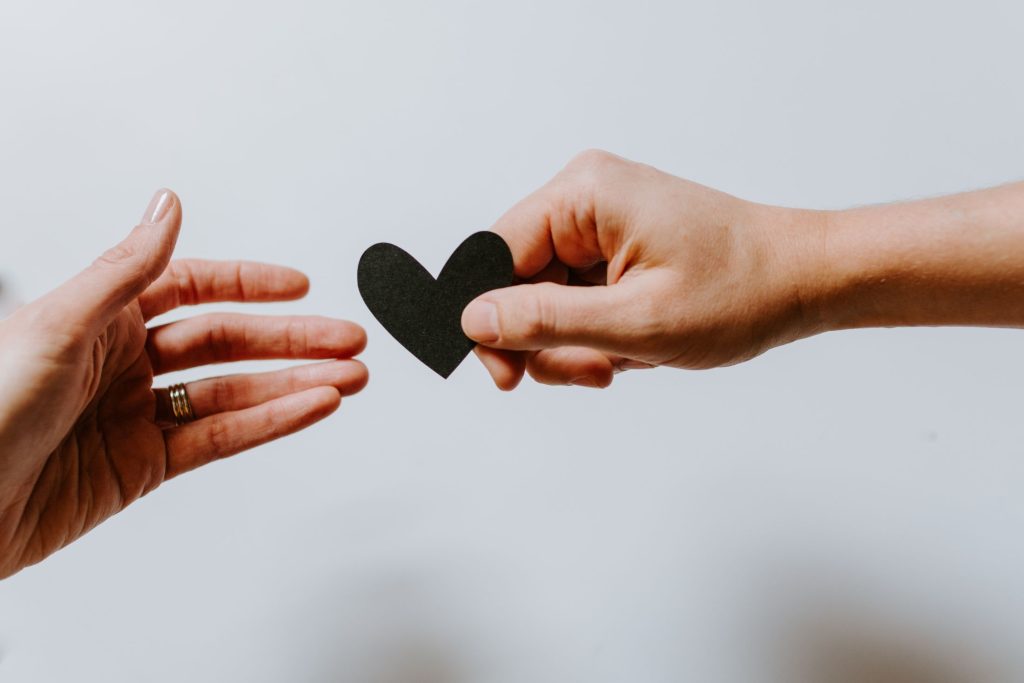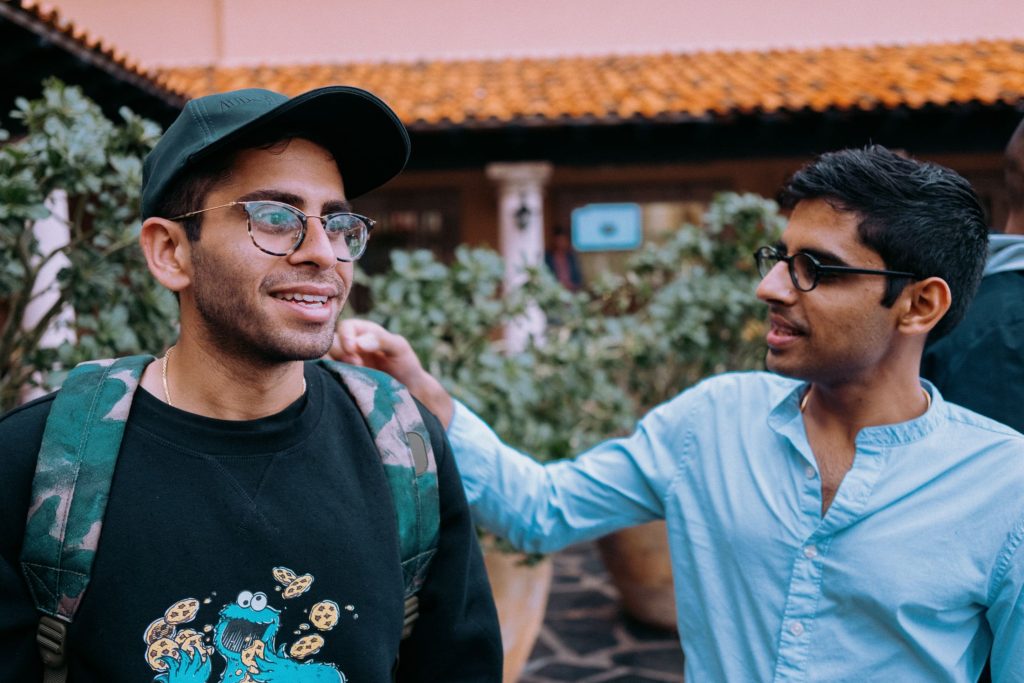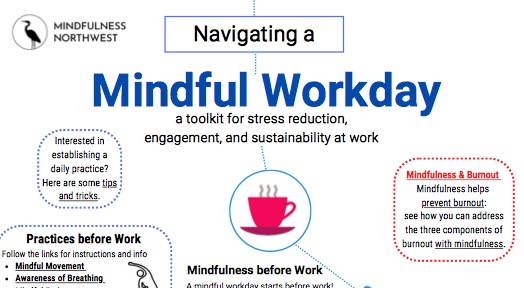
Photo by Kelly Sikkema
Take a moment and consider this: you wouldn’t be here doing what you’re doing if it were not for the kindness of others. Pause if you would, and consider: the inspiring teacher who lit you up; the unfailing support from that devoted relative; the generous boss or co-worker who helped you shine in some way. Such kind beings in our history can play a part in big pivots in our lives. Indispensable help and support that lifted us up, kept us going, that we can feel to this day if we tune into it.
The importance of this contemplation came to me from the Going Deeper: Roots of Compassion class I taught in the Fall focused on Tibetan Buddhist foundational teachings on compassion training.
Going Deeper is a project I’ve been greatly enjoying at Mindfulness Northwest. In these classes and retreats we explore the Buddhist roots of our mindfulness-based programming. I deeply enjoy the challenge of bringing traditional wisdom teachings and texts alive. It gives me great joy that having the background I do as an educator and a Zen Buddhist teacher can often allow me to “translate” traditional teachings into the practical and contemporary style of modern mindfulness – making more teachings and practices accessible.

Photo by Andrew Moca
For the Fall class I used the book Cultivating Compassion: a Buddhist Perspective by Jeffrey Hopkins, a Buddhist scholar and long-time translator for the Dalai Lama. Hopkins unpacks a complex set of traditional teachings which arise in part from a very different worldview than most of us live in. Some of the reflections and teachings revolve around experiences we would have had in past lives, for example!
A key part of this system is this reflection on the kindness we’ve received from others. And by kindness they mean much more than we might think of. Traditional teachings can be a bit radical! Here I found some challenges in interpretation as reflecting on the kindness of others includes appreciating people who are not what you or I would call “kind” at all. Even appreciating our enemies!
The idea is to learn to accept, even “treasure”, how those who get in our way can help us. Like helping us understand something deep about compassion and common humanity. And how understanding that difficulty can lead to something good in our lives – even transformational.
In my case, I think regularly of a horribly judgmental and manipulative coworker who contributed to my leaving the profession I was in. This in turn opened the door to what I do now with mindfulness. This wasn’t easy by any means. For many years whenever I had the opportunity to practice Loving Kindness for an enemy I thought of her immediately! But little by little I’ve forgiven her and come to appreciate that her aggression actually helped me in two important ways. First, the shift in my working life created space to train in mindfulness and start teaching it. Also, this difficult experience helped me understand emotions more fully and deepened my compassion as I worked through those feelings.
Here are three practices, adapted from these teachings, that you can try when contemplating the kindness of others:

Photo By Katarzyna Grabowska
Gratitude for your parents – whether you knew them or not. Settle into meditation and bring up images of your parents. No matter how imperfect they were in their parenting, you literally wouldn’t be here if not for your parents. Be gentle with yourself and invite as much appreciation as you can – even if it’s just a spoonful. Tune into their positive qualities as fully as you can and offer your own prayer or phrase of gratitude. And if that’s out of reach right now, that’s OK, too. Some of us survived abuse and traumas at the hands of our parents. You’re setting an intention that you can fulfill at a later time.
The Kindness of Others. Remember the contemplation we started the article with and take it a bit deeper. Bring to mind different chapters of your life: was there a pivotal person or two whose input, support, or even opposition, led to an important change? I’ve been working with the sentence:
“If not for __________’s help/advice/support I might never have ____________.”
It’s a positive expression and a great place to start. “If not for so-and-so’s guidance I never would have taken that position, or started that program, or had the courage to end that relationship.” What’s true for you in your life?
Then, as you feel ready, you could try seeing negative people, enemies even, in the light of appreciation. “If not for my ex-colleague’s horrible behavior, I might never have become a mindfulness teacher.” This is hard and there are, for sure, plenty of examples where harm is harm and there’s no redeeming value beyond simply surviving the situation. Be gentle with yourself and only go as far as feels right for you.

Photo by JW
I Depend On…. Think of any aspect of your life, any moment even, and consider how many others you depend on for this to be happening. Sitting down to eat is a great example. We are dependent on the seeds and animals involved; water, sun, and soil; the farm workers, the truck drivers, the grocery store workers – and that’s just the tip of the iceberg! So easily we take things for granted that require the hard work of so many others.
These teachings say that it’s kindness regardless of how that particular truck driver or grocery clerk or banker felt about their work. Through their collective kindness our world is possible and every moment of every day has a thousand threads we could follow back to the efforts of others which we are benefiting from right now.
As we enter a new year together in this turbulent world, I hope you’ll consider exploring these practices of recognizing the kindness we all depend on. Perhaps even with the radical lens of appreciating those whom we feel to be in the wrong – not easy but an interesting challenge: what’s here that I can appreciate?
Wishing you a peaceful year rich with growth and joy. And when the challenges come, may we meet them with wisdom and compassion.
Tim
P.S. Our next multi-week Going Deeper class will be on Wednesday evenings in May and June online. We’ll be unpacking a wonderful account of how a traditionally trained Buddhist teacher realized he too needed to do some “translating.” One night he snuck out of the familiar comfort of his temple and went to live on the streets for several years putting the teachings he’d learned into action in the challenges of this messy world.

Photo by Nonresident

